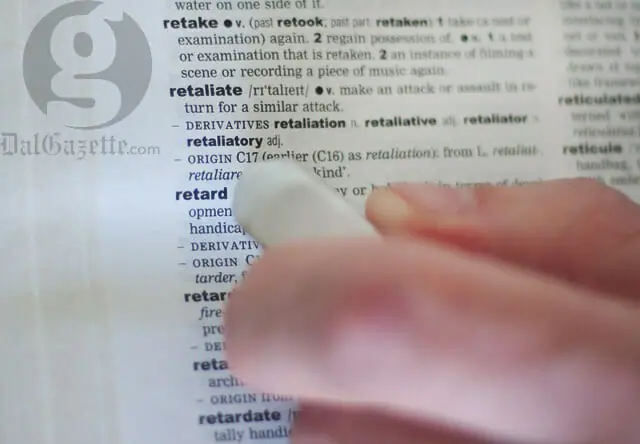
I was sitting in the SUB last week, munching on a slice of pizza bigger than my face, when I overheard the conversation of some students a few feet away from me. “How was the party on Friday?” “Dude, it was retarded!”
First of all, I would like to know what that is even supposed to infer. Secondly, I would like to examine what that word invokes, besides vague associations with “off the hook” and perhaps “wild” in this context.
Originally a medical term used to diagnose people with cognitive impairments, the word “retarded” has morphed into a common slang term far more popular than it ought to be. Students throw it around as a catchall phrase for anything interpreted as stupid, incomprehensible, ridiculous, etc.
The general resistance and eye rolling I encounter when I ask people to refrain from using this word usually stems from entrenched resentment against our society’s need for political correctness. Its use is excused by arguing that the intent has changed, it doesn’t refer to people with a disability when used as slang, blah, blah, blah.
Aside from any question of political correctness, one should question how it is that this word evolved from a medical term to a slang phrase used to designate something as stupid. This evolution seems indicative of the long-held societal prejudice that people with disabilities are dangerous, unnatural and someone to be feared.
A current series of articles in The Globe and Mail is exploring the representation of people with mental health problems in society. Unsurprisingly, the article on Jan. 13, “Mentally ill and ‘out’ but not embraced”, concluded that a large proportion of society still thinks of people with mental health issues as a threat to the safety of the general population. The article states that these people are in fact much more of a danger to themselves than to other individuals, and least of all to strangers.
From my own experience working with people with a disability, I believe that the same statement can be applied to this demographic. For the most part, there is absolutely nothing in these people that can be interpreted as a desire to harm. In my experience, when a person with a disability struck out, it was during an episode of extreme anxiety arising from a condition of their disability, which was far more painful to the individual than anyone else.
Therefore, the use of the word “retarded” as a primarily negative adjective seems to correspond to society’s negative attitude and fears towards people with a disability due to a lack of understanding.
There are still people alive today who, in their lifetime, have been medically diagnosed as “mentally retarded”. Although we largely have not yet found the means for this population to advocate for themselves, I am confident that they would not appreciate this expression of a link between the former phrasing of their diagnosis and stupidity.
Words cannot only hurt, but they can ostracize, isolate and condemn whole demographics in a single catchphrase. Accessibility is not just a physical issue, a question of whether a building has enough ramps or elevators; it is a social question as well.
While Dalhousie and King’s may have a lot of ramps, we still have a whole lot of prejudice blocking the way.

Recent Comments